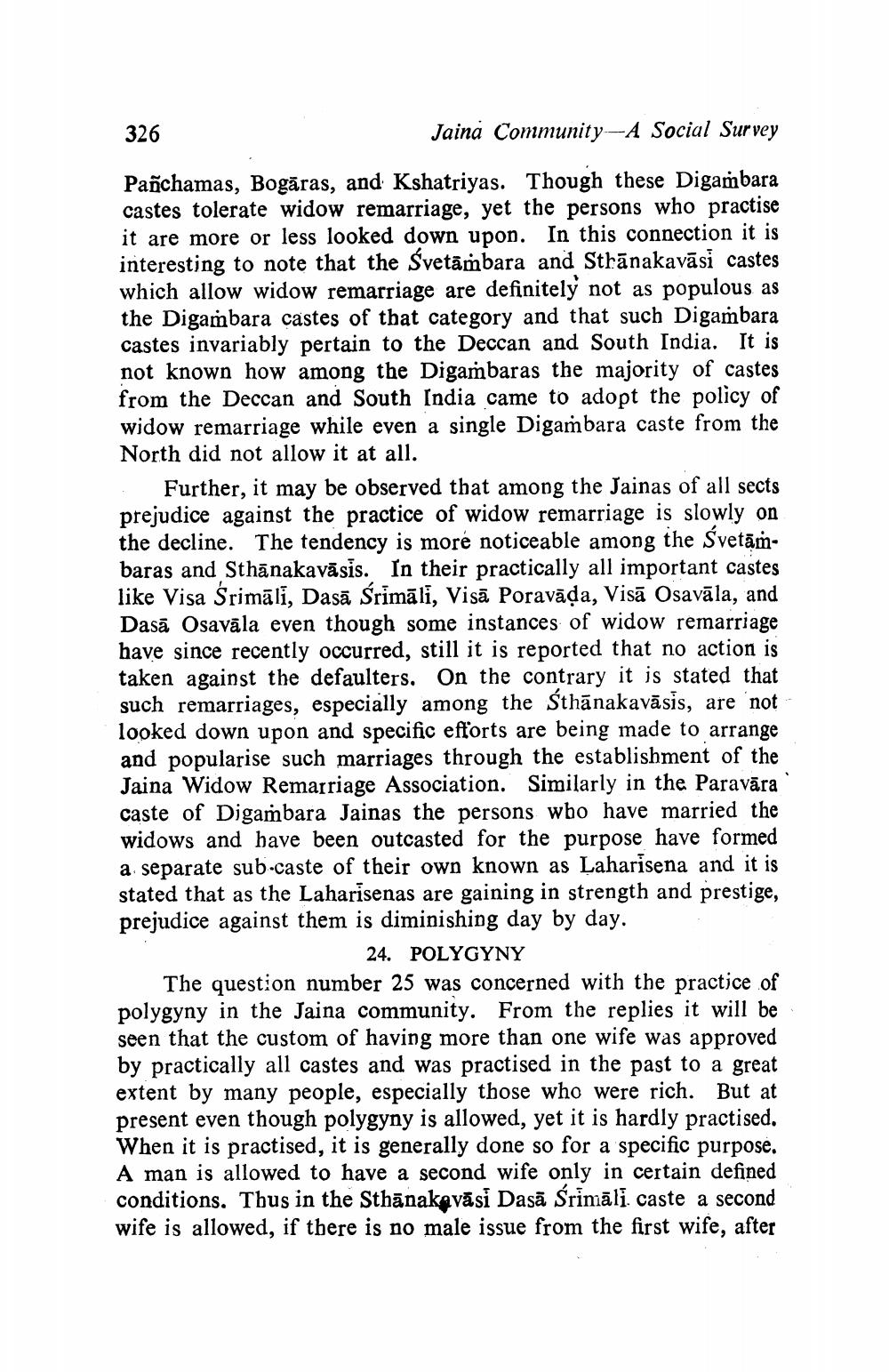________________
326
Jaina Community-A Social Survey
Pañchamas, Bogāras, and Kshatriyas. Though these Digambara castes tolerate widow remarriage, yet the persons who practise it are more or less looked down upon. In this connection it is interesting to note that the Svetāṁbara and Sthānakavāsi castes which allow widow remarriage are definitely not as populous as the Digambara castes of that category and that such Digambara castes invariably pertain to the Deccan and South India. It is not known how among the Digambaras the majority of castes from the Deccan and South India came to adopt the policy of widow remarriage while even a single Digambara caste from the North did not allow it at all.
Further, it may be observed that among the Jainas of all sects prejudice against the practice of widow remarriage is slowly on the decline. The tendency is more noticeable among the Svetāmbaras and Sthānakavāsis. In their practically all important castes like Visa Srimāli, Dasā Srimāli, Visā Poravāda, Visā Osavāla, and Dasā Osavāla even though some instances of widow remarriage have since recently occurred, still it is reported that no action is taken against the defaulters. On the contrary it is stated that such remarriages, especially among the sthānakavāsis, are not looked down upon and specific efforts are being made to arrange and popularise such marriages through the establishment of the Jaina Widow Remarriage Association. Similarly in the Paravāra caste of Digambara Jainas the persons who have married the widows and have been outcasted for the purpose have formed a separate sub-caste of their own known as Laharisena and it is stated that as the Laharisenas are gaining in strength and prestige, prejudice against them is diminishing day by day.
24. POLYGYNY The question number 25 was concerned with the practice of polygyny in the Jaina community. From the replies it will be seen that the custom of having more than one wife was approved by practically all castes and was practised in the past to a great extent by many people, especially those who were rich. But at present even though polygyny is allowed, yet it is hardly practised. When it is practised, it is generally done so for a specific purpose. A man is allowed to have a second wife only in certain defined conditions. Thus in the Sthānakavāsi Dasā Srimāli caste a second wife is allowed, if there is no male issue from the first wife, after




